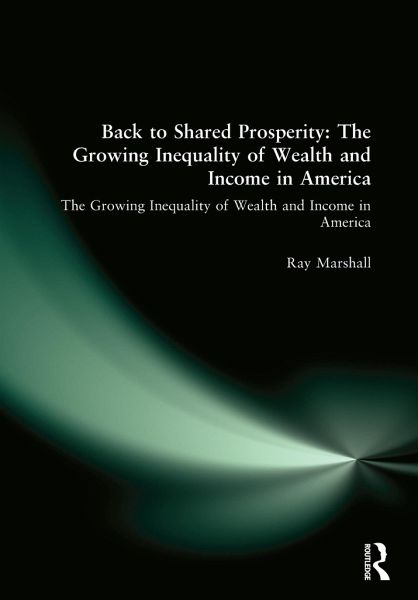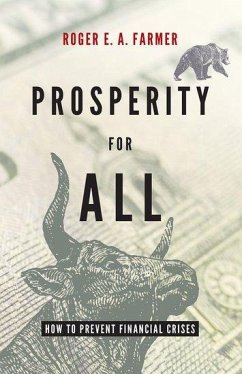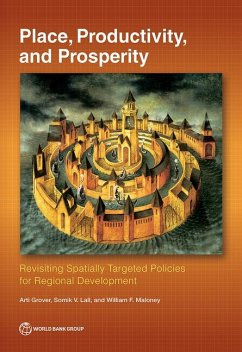
Back to Shared Prosperity
The Growing Inequality of Wealth and Income in America: The Growing Inequality of Wealth and Income in America
Versandkostenfrei!
Versandfertig in über 4 Wochen
37,99 €
inkl. MwSt.
Weitere Ausgaben:

PAYBACK Punkte
19 °P sammeln!
To what extent are major social and political problems caused by basic income and unemployment trends? Is it possible to restore the kind of broadly shared prosperity the United States once enjoyed before the early 1970s? Back to Shared Prosperity is a collection of 37 essays in which some of the top economists of our time -- Dean Baker, Jane D' Arista, Gary Dymski, Robert Eisner, Jeff Faux, Robert Solow, Lester Thurow, and others -- address these critical questions. Comprehensive and well documented, Back to Shared Prosperity provides a multidisciplinary analysis of the economic, political, a...
To what extent are major social and political problems caused by basic income and unemployment trends? Is it possible to restore the kind of broadly shared prosperity the United States once enjoyed before the early 1970s? Back to Shared Prosperity is a collection of 37 essays in which some of the top economists of our time -- Dean Baker, Jane D' Arista, Gary Dymski, Robert Eisner, Jeff Faux, Robert Solow, Lester Thurow, and others -- address these critical questions. Comprehensive and well documented, Back to Shared Prosperity provides a multidisciplinary analysis of the economic, political, and social effects of the growing income inequality in the United States. Issues such as managerial greed, persistent joblessness, budgets and taxes, community development, the networked economy, and prospects for minorities are discussed in detail, and the authors offer realistic policy recommendations to address each of these concerns.














![Home Market and Farm [microform]: How the Agricultural and Industrial Prosperity of Canada Depend on Each Other, and Will Be Hurt by Reciprocity With Cover Home Market and Farm [microform]: How the Agricultural and Industrial Prosperity of Canada Depend on Each Other, and Will Be Hurt by Reciprocity With](https://bilder.buecher.de/produkte/66/66167/66167154n.jpg)